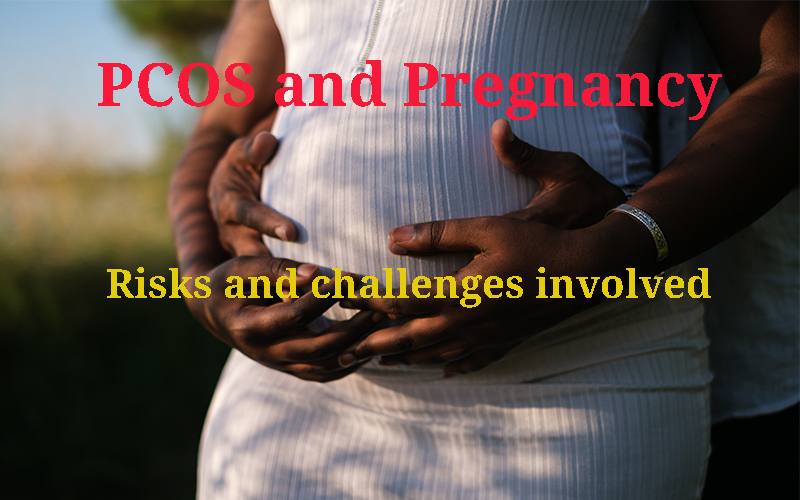PCOS and Pregnancy – If you have PCOS, you will likely find it harder to get pregnant because of dysovulation. This might be because of the hormonal imbalances caused by the condition.
PCOS (Polycystic ovarian syndrome) is a condition that affects around 10% of women of reproductive age. The condition is typically challenging as it interferes with a woman’s ability to get pregnant. Even if you overcome that hurdle and get pregnant, your condition increases your risk for complications while you are pregnant and even during labor and delivery.


In comparison to women without PCOS, the risk of miscarriage is three times higher in women having PCOS. Not just that, these women are also at an increased risk of developing gestational diabetes because of insulin resistance, preeclampsia, premature delivery, and having a larger baby. This can cause difficulties during cesarean delivery or normal delivery.
Risks for pregnant women
If you have PCOS, you will likely find it harder to get pregnant because of dysovulation. This might be because of the hormonal imbalances caused by the condition. Obesity is more common among women having PCOS and they are likely to need reproductive technology for getting pregnant. Among women with PCOS, around 60% are obese and around 14% need reproductive technology for conceiving. A woman having PCOS has an increased risk of developing numerous health complications throughout their life, such as:
• type 2 diabetes
• insulin resistance
• high blood pressure
• high cholesterol
• heart disease
• sleep apnea
• stroke
• Higher risk of endometrial cancer
When it comes to pregnancy, the risk of complications is higher in the case of PCOS. One such risk is preeclampsia, which is a dangerous condition for the mother as well as the fetus. For resolving the symptoms, the recommended treatment is the delivery of the placenta and baby. Your doctor will have a discussion with you regarding the timing of delivery and the benefits and risks depending on how severe the symptoms are and the gestational age of your baby. If you end up developing preeclampsia when you are pregnant, you will have to be closely monitored.
Other challenges for pregnant women with PCOS are gestational diabetes and pregnancy-induced high blood pressure (hypertension). If you have gestational diabetes, your baby could be larger, which can cause issues during delivery. For instance, with larger babies, there is a higher risk of the shoulder of the baby getting stuck during labor, a condition known as shoulder dystocia.
Careful monitoring can help treat most PCOS-related symptoms during pregnancy. If you end up developing gestational diabetes, you may need to keep the levels of your blood sugar stable through the use of insulin.
Risks for your baby
Having PCOS when you are pregnant makes things more complicated, even for your baby-to-be. Both you and your baby need to be closely monitored. Some of the potential risks for the baby if you have PCOS include:
• Miscarriage
• Larger than normal for gestational age and still birth.
• Low Apgar score.
• Premature birth
If you have a baby girl, there is as much as a 50% chance that she will also end up developing PCOS. Since babies tend to be larger if the mother has PCOS during pregnancy, delivery via cesarean is more likely. Complications may also arise during delivery and labor.


Dr. Neera Kripala
Senior Consultant Obstetrics and Gynaecology
Apollo Cradle and Children’s Hospital.











